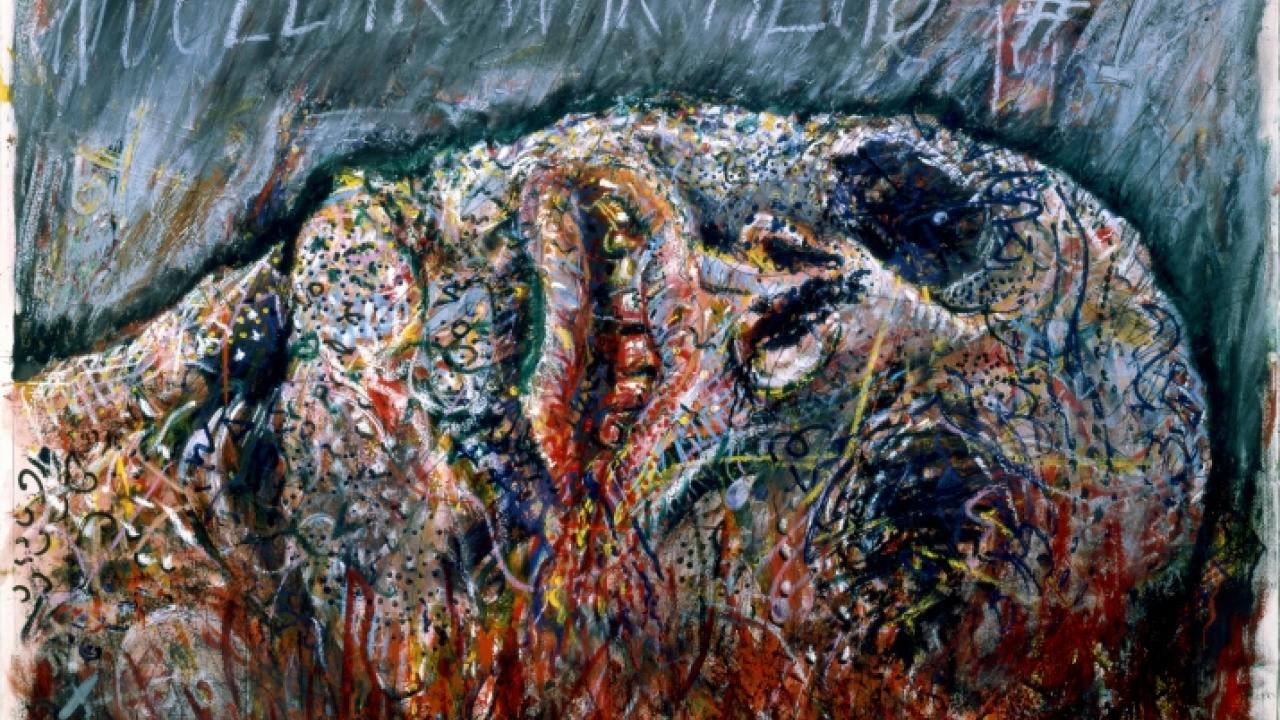Historian Kathryn Olmsted was a graduate student at University of California, Davis, when the Robert Arneson's Egghead Series of sculptures began being installed throughout campus. That was the first she had heard of the first-generation art faculty known for his clay works and who is often dubbed the father of the California Funk movement.
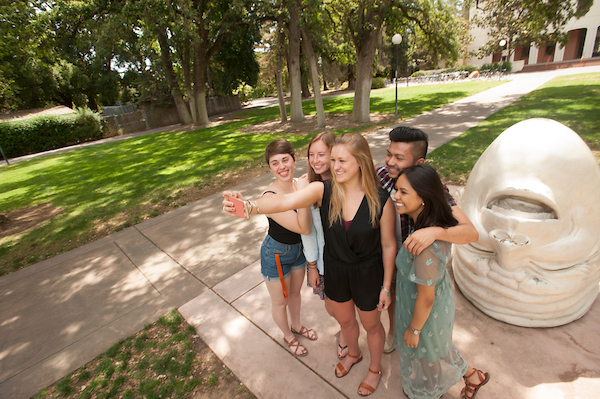
But a few months ago, she learned much more about the artist’s story than the iconic white heads that show up in so many UC Davis graduation photos.
Olmsted, who has been a history professor at UC Davis since 2001, has written an essay in a newly published catalog for New York’s George Adams Gallery exhibition of Arneson’s work. Robert Arneson/The Anti-War Works: 1982-1986 is on view at the Manhattan gallery through Oct. 26. Like many people, she had never known of his war works, which were completed at a time when he and his wife, Sandra Shannonhouse, who wrote the introduction to the catalog, became politically active in their hometown of Benicia. That’s the town where Arneson — one of the original UC Davis art faculty who taught at the university from the 1960s to the 1990s — grew up. It is also where in later life he became actively concerned about national and international proliferation of nuclear weapons.
In Conversation: Sandra Shannonhouse
Sandra Shannonhouse, Robert Arneson's widow, will join with Manetti Shrem Museum of Art Founding Director Rachel Teagle to discuss the centerpiece of the museum's Landscape Without Boundaries exhibition, "The Palace at 9 a.m."
Where: Jan Shrem and Maria Manetti Shrem Museum of Art, UC Davis
When: Saturday, Oct. 19, 2:30 p.m.
More on exhibitions here.
Arneson, true to form, took his political feelings and activism to his clay, paint and paper, creating what is often painful, crushing commentary on the 1980s arms race.
Shannonhouse, who is also a UC Davis art alumna, writes in her introduction to the exhibition catalog that in 1981 her husband was commissioned by the San Francisco Arts Commission to create a portrait of assassinated San Francisco Mayor George Moscone. The sculpture he created was strongly objected to by then-Mayor Dianne Feinstein and others. (See video link below). The negative response resulted in Arneson's work receiving much publicity — he was a villain to some and a hero to others — and he earned broader recognition of his work than before, wrote Shannonhouse.
Ronald Reagan was elected president, the arms race had also exacerbated, and times were tumultuous. “It was during this fraught period that Bob was approached by a student activist suggesting that “he should address the issue of nuclear war through his art,” Shannonhouse wrote.
“I didn’t know much about him, and what he did toward the end of his life,” said Olmsted, who visited with the Arneson family at the Arneson archives in Benicia to research the essay.
“He created art about a bleak subject — nuclear war — and that really was a bold move on his part.” — Kathryn Olmsted
A history with art
This was not the first time Olmsted has written about art. In 2018, she wrote for a New York Metropolitan Museum of Art catalog on a show called Everything Is Connected: Art and Conspiracy. She also engaged in a panel discussion on that exhibition.
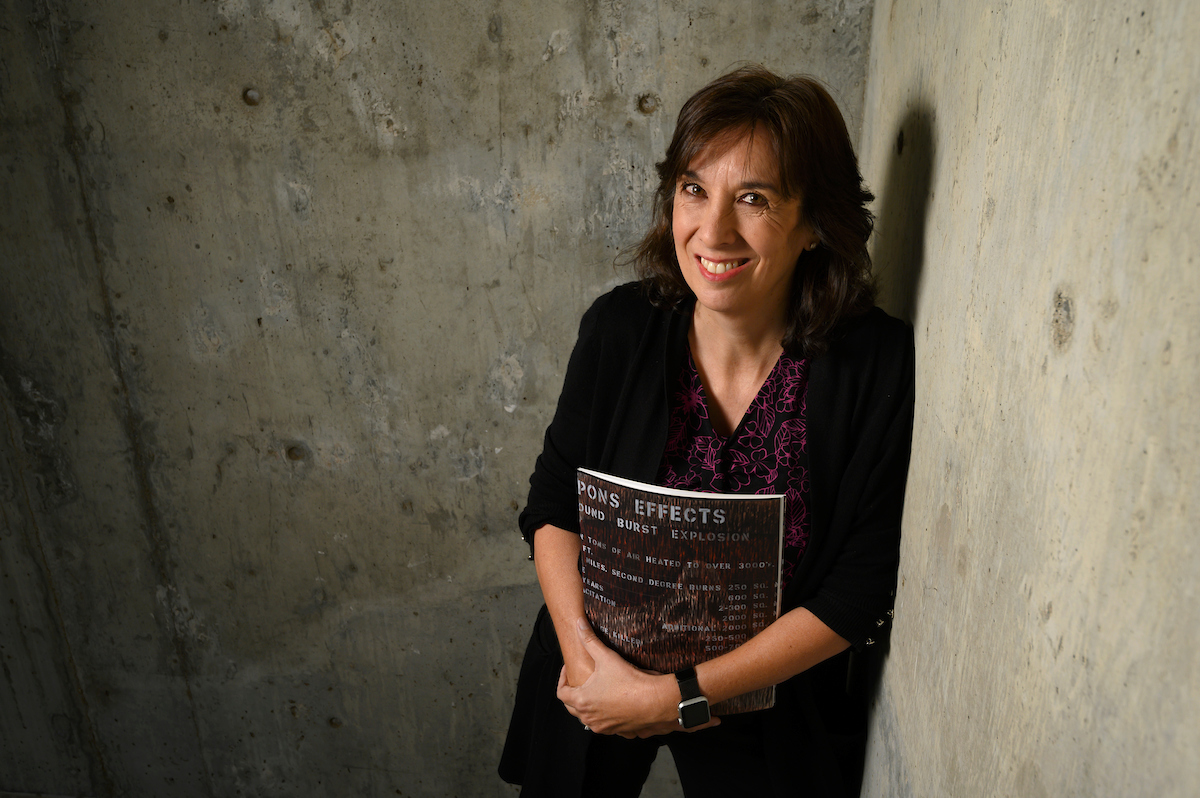
That was very much in line with her research, as she is known in media, political and academic circles as a historian who specializes in conspiracy theories, particularly those that are anti-government. She has written numerous books and commentaries on conspiracies throughout history.
George Adams knew of the Metropolitan Museum work, and her UC Davis connections, and asked her to write the essay. David Kiehl, curator emeritus of prints at the Whitney Museum of American Art, wrote more about the exhibition in the catalog.
A ‘Nuclear War Head’ and other in-the-face art
Her essay, titled, ‘“We’re in Serious Trouble Now,’: Robert Arneson’s Anti-Nuclear Politics,” follows immediately after Shannonhouse’s introduction and is illustrated with, among other pieces, Arneson’s in-the-face acrylic painting, “Nuclear War Head #1,” which depicts a seemingly partly decomposed, disfigured, burning or burnt head lying horizontally.
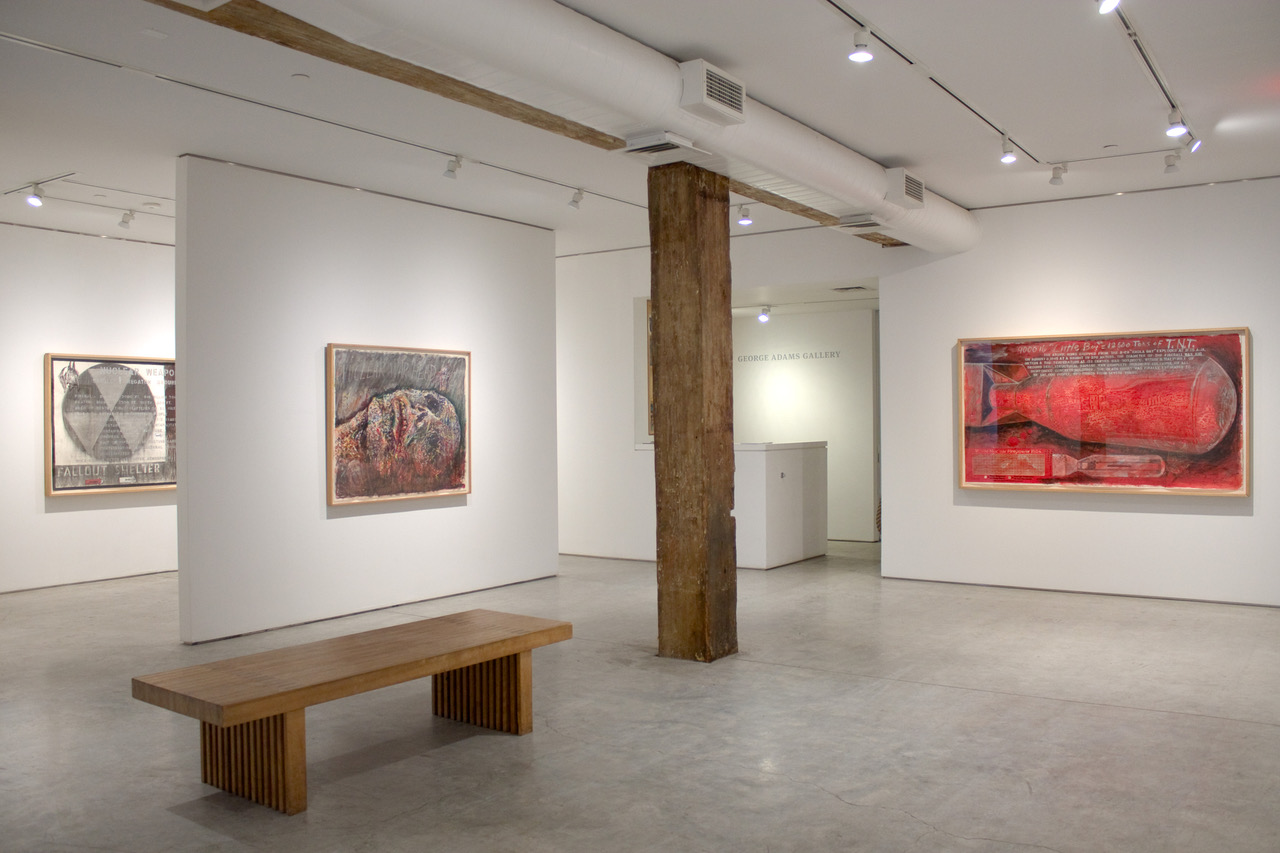
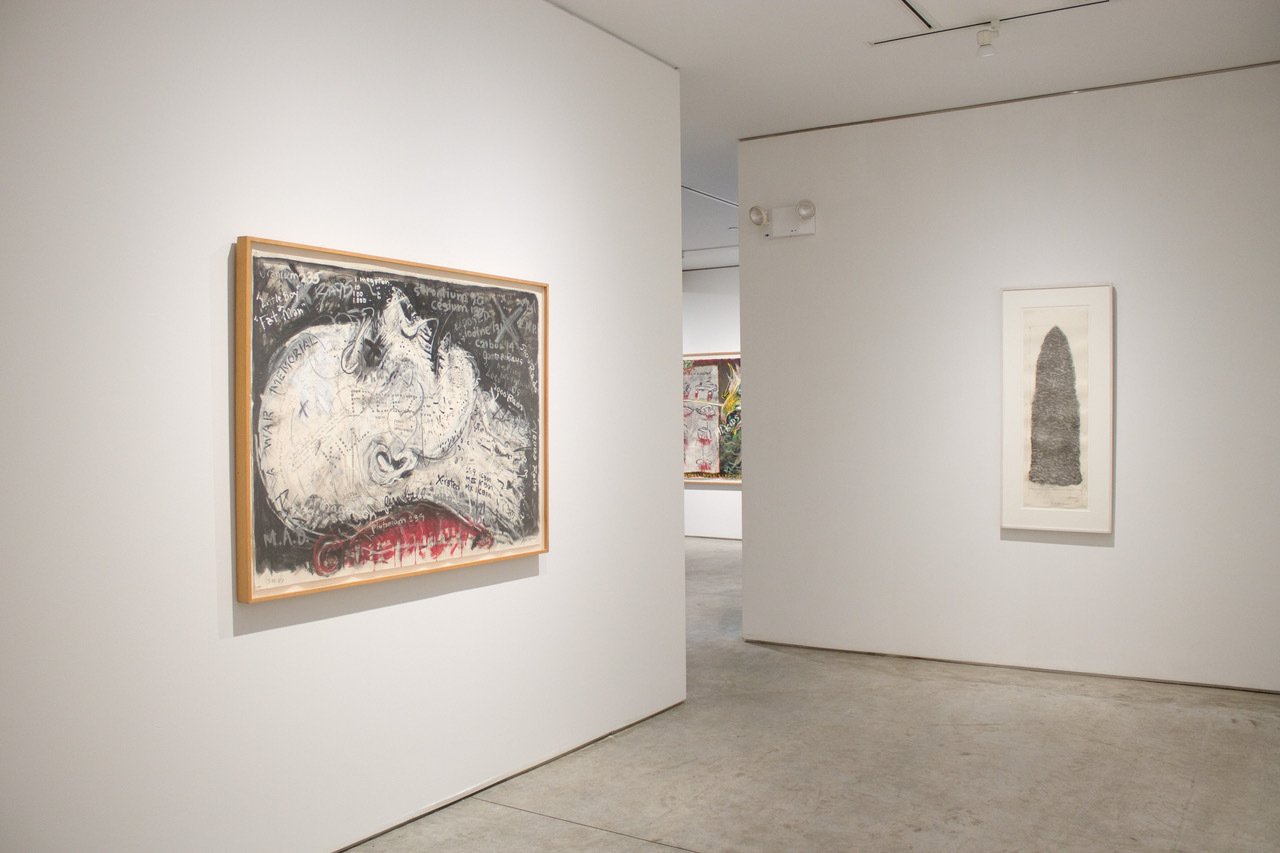
About the place and time Arneson created this art, Olmsted wrote: “All around him, Robert Arneson could see his fellow Californians working to force government officials to stop the arms race. He shared their outrage and chose to express it through his art.”
All along, Arneson was suffering from the cancer that eventually killed him in 1992.
A timeline of art, pain
The illustrated timeline that accompanies Olmsted’s essay poignantly describes surgeries and hospital visits intermingled with art exhibitions and political events that fed his passion. In the 1982 section of the timeline, “Nuclear Freeze referendum passes as a ballot measure in California” is in the same section with, noted on Dec. 26, “Arneson undergoes surgery to treat further complications from cancer.”
On the same day Ronald Reagan was re-elected president in 1984, Arneson underwent “surgery to rebuild bladder.”
Olmsted concludes her essay discussing some of the concessions Reagan, and then-Soviet leader Mikhail Gorbachev, made about the dangers of nuclear weapons:
“Robert Arneson and other anti-nuclear activists and artists would continue to pressure Reagan and his successors to live up to the promises they made in response to the peace movement of the 1980s. In recent years, though, President Donald Trump and Russian President Vladimir Putin have both repudiated the INF Treaty that Reagan and Gorbachev signed."
“Perhaps it is time to recommit to the principles that Arneson fought for in his art.” — Olmsted in her essay
Related content
A Sojourner's Path: From a Temporary Building to the World and Back
SF MOMA video: Robert Arneson's Controversial Portrait of Mayor Moscone
